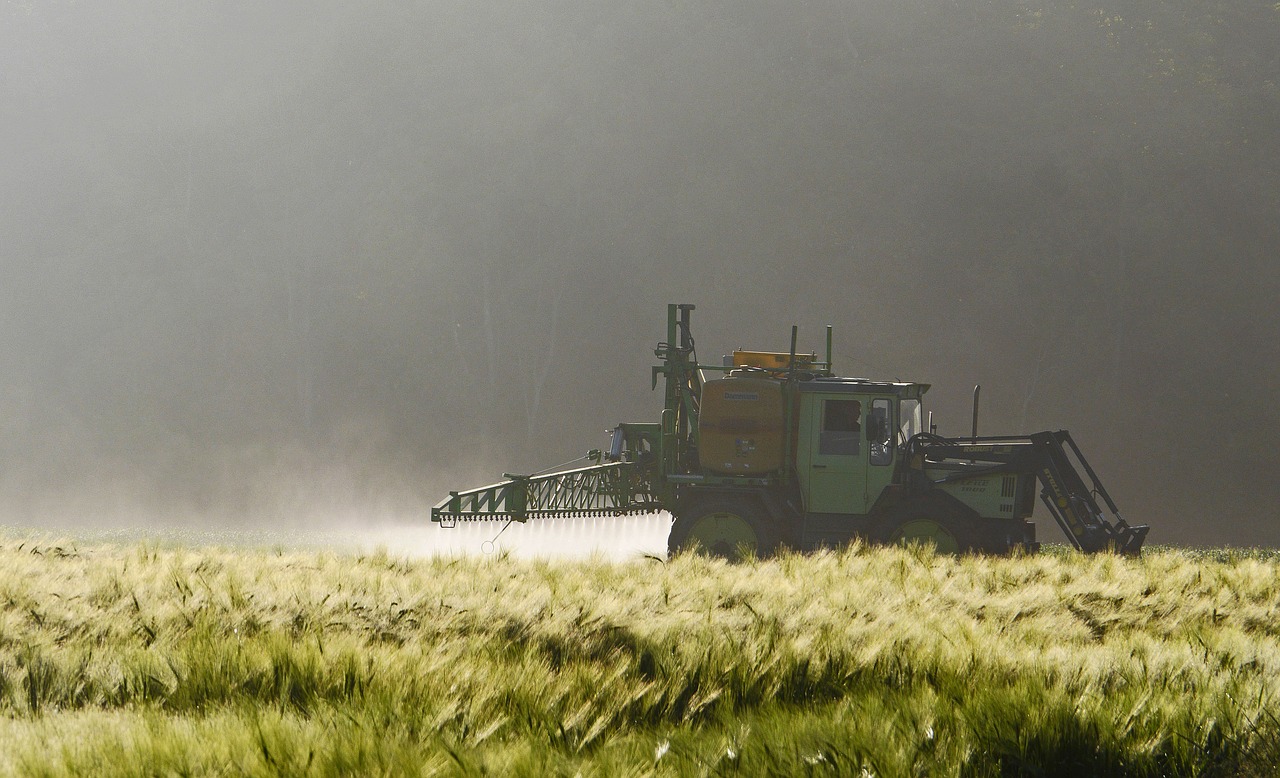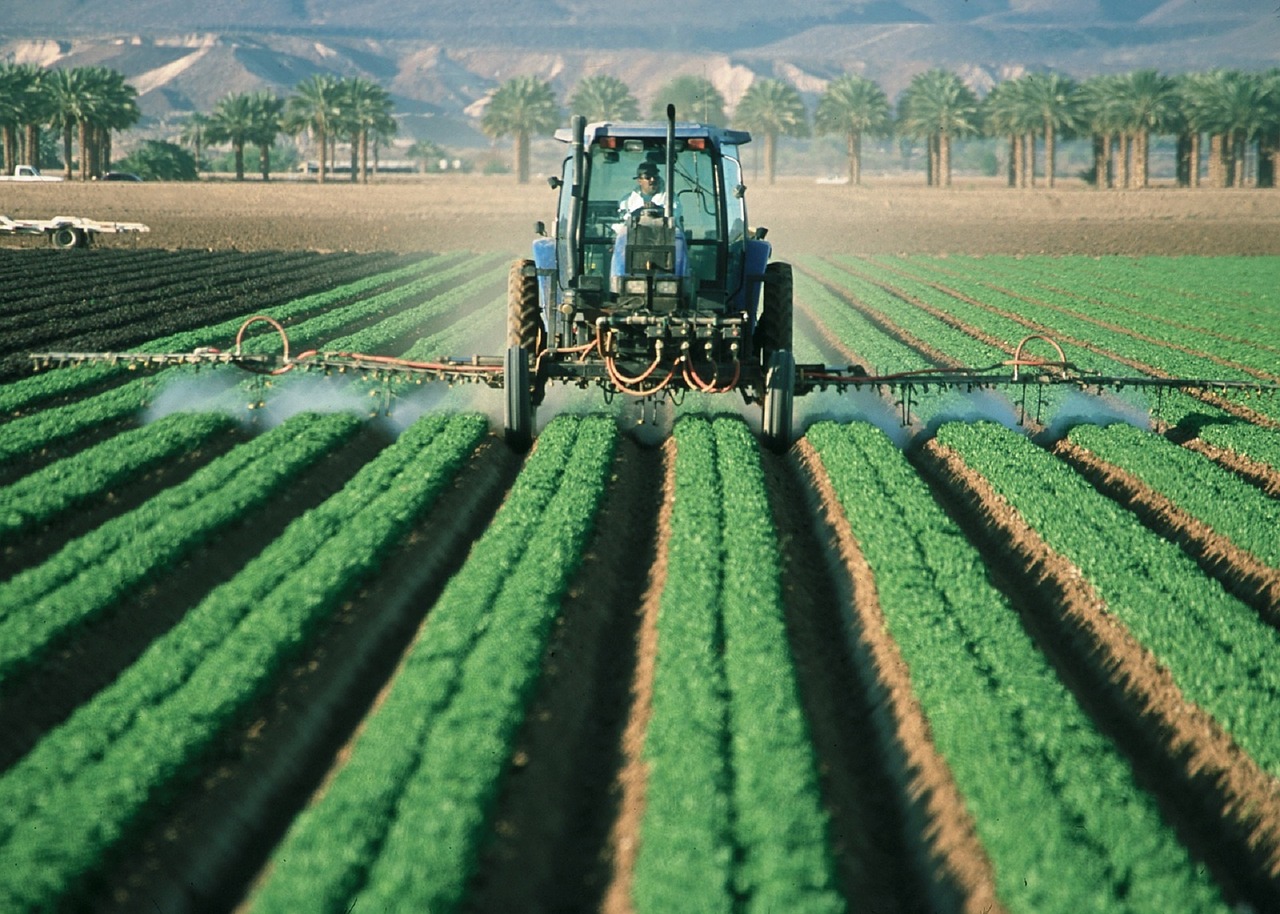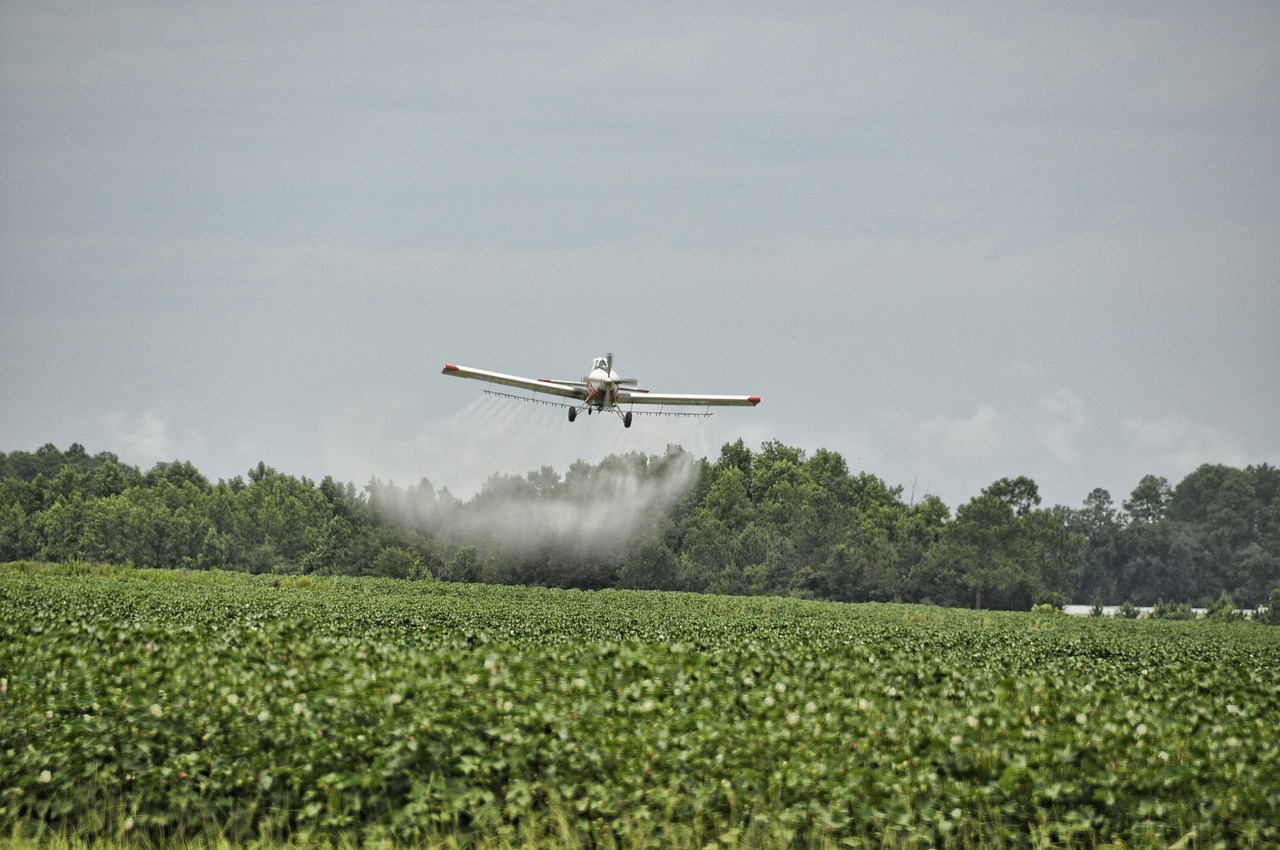Dans un nouveau rapport d’experts, l’alarme est donnée vis-à-vis des fusions de mega-entreprises de l’agroalimentaire
Rome, le 13 octobre 2017: Les principales entreprises de l’agroalimentaire sont devenues trop grosses pour nourrir l’humanité de manière responsable et durable, trop grosses pour agir en cooperation avec les autres acteurs du secteur et trop grosses pour mener le type de projets innovants dont nous avons besoin.
Lisez les arguments clés en Francais.

Unkrautvernichtung in der konventionellen Landwirtschaft. (Foto: Pixabay)
Dominant agri-food firms have become too big to feed humanity sustainably, too big to operate on equitable terms with other food system actors, and too big to drive the types of innovation we need.
This was the verdict of the International Panel of Experts on Sustainable Food Systems (IPES-Food), as it sounded the alarm on the unprecedented wave of mega-mergers sweeping through food systems in a new report launched today.
In a letter to the European Commission, the expert panel communicated the troubling findings and called for the imminent merger between Bayer and Monsanto to be urgently scrutinized.
Pat Mooney, lead author of the IPES-Food report, said:
“We are now in unchartered territory. If the deals on the table go ahead, three firms will control more than 60% of global seed and pesticide markets.”
“Mergers are increasingly allowing firms to control information flows along the chain and exercise huge power over the trajectory of food systems”, he added. The report identifies Big Data as a powerful new driver of consolidation, allowing companies to bring satellite data services, input provision, farm-level genomic information, farm machinery, and market information under one roof.
Olivier De Schutter, IPES-Food co-chair and former UN Special Rapporteur on the right to food, said: “Rampant consolidation in the agri-food industry is bad for farmers, whose incomes are squeezed at one end by a handful of input providers, and at the other by processing and retail giants with huge bargaining power.”
“It is also bad for society,” he added. “Once they have cornered the market, mega-firms focus on defending their market share and shaping policies to fit their needs – not on delivering the innovation we need to build sustainable food systems.”

Großflächendüngung in der konventionellen Landwirtschaft. (Foto: Pixabay)
Drawing on the most recent data, the report identifies unprecedented levels of market concentration throughout the agri-food sector:
- In the animal genetics industry, three companies supply over 90% of breeding stock for broilers, layer hens, turkeys and pigs.
- Five companies account for more than half of the farm machinery market, and are moving towards ownership of Big Data and artificial intelligence.
- Consolidation is also accelerating at the ‘fork’ end of the chain, with record deals being struck in the food processing sector (Heinz and Kraft Foods – $55 billion), beverages (AB InBev and SABMiller – $120 billion) and retail (Amazon and Whole Foods – $13.7 billion).

Pestizide werden konventioneller Landwirtschaft auf einem Feld versprüht. (Foto: Pixabay)
Read the FULL REPORT.
Read the EXECUTIVE SUMMARY.
Read the key messages in FRENCH.
Read IPES-Food’s LETTER to the European Commission on the Bayer-Monsanto merger.

More information in German:

